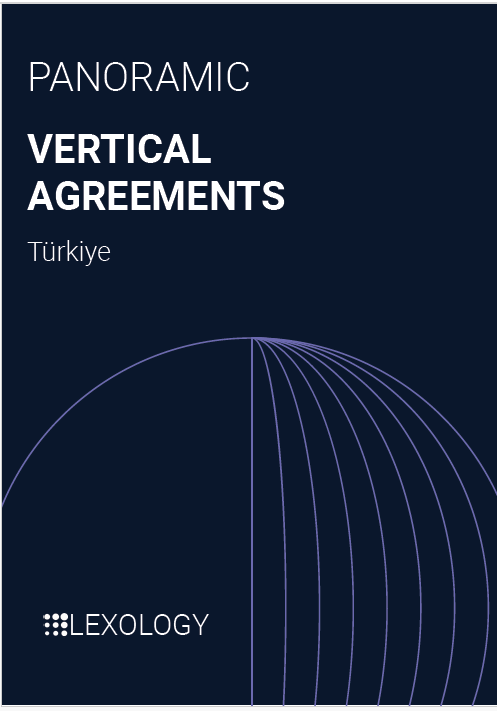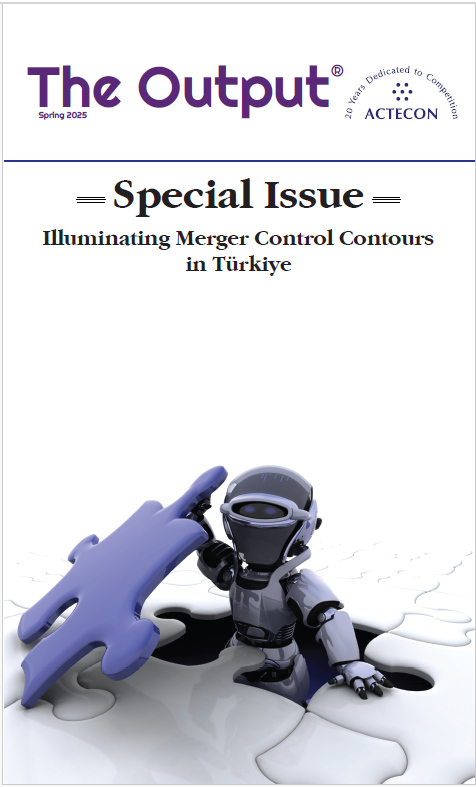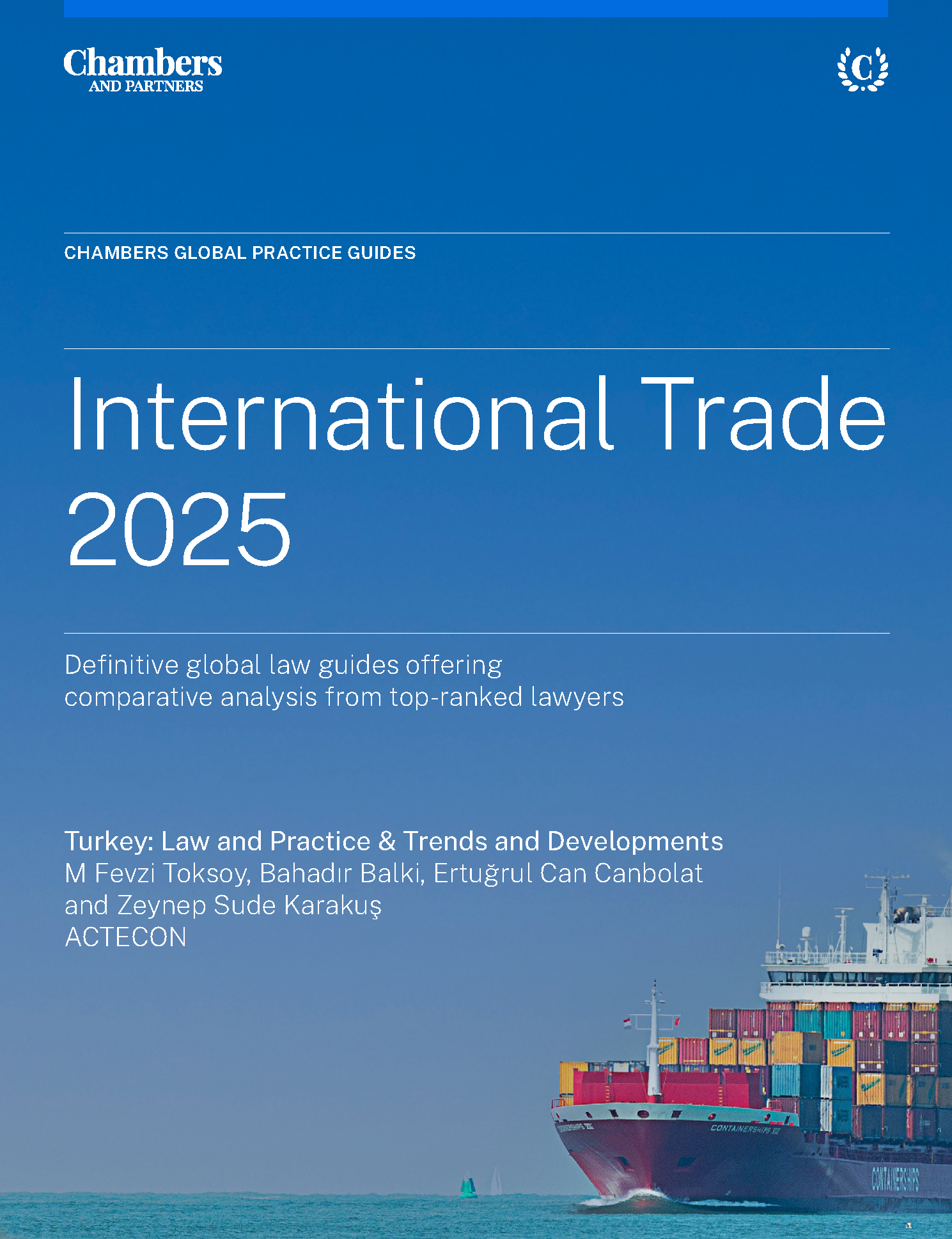After Almost 13 Years Long Fight, the Constitutional Court Ruled that the Principle of Legality of Crimes and Punishments Violated with Respect to Determination of Administrative Fine by the Turkish Competition Authority (Onmed)
| Competition Law

After Almost 13 Years Long Fight, the Constitutional Court Ruled that the Principle of Legality of Crimes and Punishments Violated with Respect to Determination of Administrative Fine by the Turkish Competition Authority (Onmed)
Article by Ertuğrul Can Canbolat, Caner K. Çeşit, Burak Buğrahan Sezer
Introduction
On 30 September 2020, the Constitutional Court’s long-awaited decision as regards the controversies arisen from the application of the most favorable law in competition law cases was announced in the Turkish Official Gazette[1]. This decision appears to be a crucial one as it is the first decision of the Constitutional Court finding a violation of constitutional rights of the concerned undertaking during the appeal process of a competition law case[2]. The Constitutional Court’s decision is also significant as it is highlighting the nature of administrative sanctions that can be imposed in competition law cases and thus the importance of implementing the principle of legality of crimes and punishments in such cases. Having said that, it has become one of the most popular topics whether this decision may trigger other individual applications with respect to other competition law concerns before the Constitutional Court.
Below we provide with a brief background of the Turkish Competition Authority’s (“TCA”) decision[3] and the Council of State, Plenary Session of Administrative Law Chambers’ decision[4] particularly focusing on the turnover taken into consideration when calculating the basis of the administrative fine. Then we will explain the main points of the Constitutional Court’s reasoning.
Background of the Constitutional Court’s Decision
Back in 2007, an investigation had been initiated against the certain undertakings operating in the medical consumables market. As a consequence of the investigation, the TCA decided that the concerned undertakings violated Article 4 of the Law No. 4054 on the Protection of Competition (“Competition Law”). Therefore, the TCA imposed TRY 616,285.96 (approximately EUR 565,400)[5] administrative fine to Onmed Tıbbi Ürünler Paz. ve Dış Tic. Ltd. Şti. (“Onmed”) based on 5% of the company’s net sales achieved in 2001. In accordance with Article 16 of the Competition Law which was in force at the time, the financial year (2001) preceding the breach has been taken into consideration in relation to net sales which was utilized for the calculation of the administrative fine.
While the lawsuits filed by the concerned undertakings against the decision were pending, Article 16 of the Competition Law has been changed by the amendment[6]. As a result of the said amendment, it has been envisaged that “annual gross revenues of undertakings and associations of undertakings or members of such associations which generate by the end of the financial year preceding the decision, or which generate by the end of the financial year closest to the date of the decision if it would not be possible to calculate it and which would be determined by the Board” shall be taken into consideration in the scope of the determination of revenues basis for administrative fine and not the year prior to the violation.
Indeed, as a result of the lawsuits filed by certain undertakings fined in the same case, it was concluded that the provision of law in favor should be applied retrospectively, and the TCA’s decision, which was imposed regardless of the year before the date of the decision (2006), was annulled in terms of the relevant undertakings. However, Onmed’s and some of the other undertaking’s same argument was ignored during the appeal process and their lawsuits were dismissed. Further, applications of some of the undertakings -whose lawsuits were dismissed- to the TCA with the request for implementation of the precedent decision stating that the favorable law shall be imposed to their cases were rejected by the TCA[7].
At this point, it would be appropriate to mention the issue which should be taken into consideration in terms of application of the favorable law rule. Hereunder, in parallel to the legislation in force at the time of the TCA’s decision, it is necessary to compare the revenue determined according to the financial year preceding the breach (2001 in current case) with the revenue determined based on the financial year preceding the time of the decision (2006 in current case) following the amendment of the Competition Law. If the revenue determined utilizing the method in the amendment of the Competition Law would not be less than the revenue determined according to the practice before the amendment, the favorable law rule will no longer be applicable.
In this context, Onmed brought its claim that the amendment had not been applied to its case without a reason before the Constitutional Court via individual application.
Highlights of the Constitutional Court’s Decision
One of the striking points of the Constitutional Court’s decision is the determination of the applicability of the principle of legality of crimes and punishments in terms of the decisions of the regulatory authorities with the power to impose high administrative fines. The repetition of the determination that administrative fines, which are also a misdemeanor, have a criminal aspect, once again revealed that the regulatory authorities should act in accordance with the constitutional rights. Therefore, the Constitutional Court’s decision may now increase the appetite of the undertakings to bringing the TCA’s decisions before the Constitutional Court through individual application.
At this point, it should be emphasized that the effects of the Constitutional Court’s decision may not be limited to the principle of legality of crimes and punishments. As a matter of fact, it is possible to evaluate arguments against the standards of proof or the limits of on-the-spot inspection (dawn raid) powers, which are highly controversial especially in terms of the TCA’s decisions, within the scope of the property rights, the right to the inviolability of the home, and the right to a fair trial.
The following statement within the Constitutional Court’s decision is also remarkable: “The Applicant Company claimed that the aforementioned amendment was in its favor and should be implemented, during the rectification phase, but the İDDK (the Council of State, Plenary Session of Administrative Law Chambers) did not make any evaluation on this matter. The allegations of the Applicant Company that the aforementioned amendment was in its favor and should be applied were not taken into consideration during the trial process.” This situation reveals the necessity of the administrative judiciary to handle the claims of the relevant undertakings at an adequate level and that the contrary situation may harm the constitutional rights of the undertakings.
However, it is controversial how effective is the application for a claim made through the Constitutional Court is, especially in terms of time. Likewise, while the individual application was made on 27 April 2016, the Constitutional Court’s decision could only be taken after more than 4 years had passed upon the application. In view of the inference that the decision in question may increase the number of individual applications to the Constitutional Court, it is possible to say that the evaluation process may need to be accelerated.
Concluding Remarks
To sum up, the concerned undertakings fined by the regulatory authorities, including the TCA, may make an individual application before the Constitutional Court. In this context, the regulatory authorities and the administrative judiciary should be much more cautious regarding the constitutional rights of the undertakings. Although the Constitutional Court’s decision is related to the principle of legality of crimes and punishments, the potential individual applications may be based on the property rights, the right to the inviolability of the home, and the right to a fair trial. Such individual applications will probably draw a well-defined framework to the constitutional rights in the context of the Turkish competition law.
[2] The Constitutional Court’s decision dated 17 June 2020 numbered 2016/8342.
[3] The TCA’s decision dated 16 March 2007 numbered 07-24/236-76.
https://www.rekabet.gov.tr/Karar?kararId=532a77fe-9914-47ba-a90b-9bf107b8be53
[4] The Council of State, Plenary Session of Administrative Law Chambers’ decision dated 14 December 2015 numbered E. 2014/3068, K. 2015/5143.
[5] In the calculation of the fine in terms of EUR, average buying rate of exchange of the Central Bank of Turkey for the financial year the turnover is generated took into consideration as the rate of exchange. For 2001, this rate was TRY 1 = EUR 1.09.
[6] The amendment published in the Turkish Official Gazette on 08 February 2008.
[7] The TCA’s decision dated 04 May 2017 numbered 17-15/211-90.







